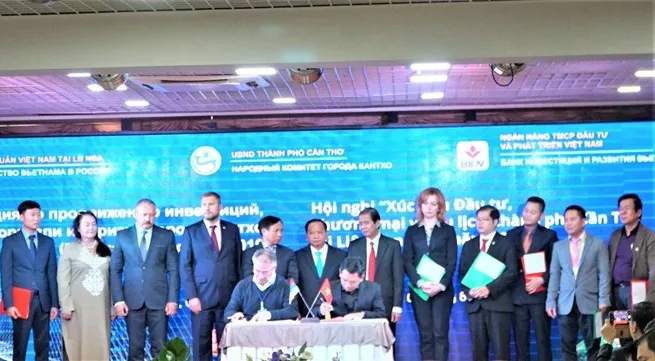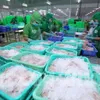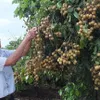Can Tho city works to foster economic ties with Russia

Opening the event, Vietnamese Ambassador to Russia Ngo Duc Manh said this was the first time Can Tho had held such conference in the European country to seek cooperation opportunities with local partners.
As the capital of Vietnam’s southwestern region, Can Tho is a production hub of not only rice but also fruits and aquatic products. Its people are also known for their hospitality, he said, voicing his belief that Vietnam-Russia relations, especially locality-to-locality ties, will develop more and more strongly.
With its advantages, Can Tho has sufficient conditions and potential for effective cooperation with Russian localities, the diplomat added.
Vice Chairman of the municipal People’s Committee Nguyen Thanh Dung stressed that his city’s administration and businesses will create the most optimal conditions for partnerships with Russian enterprises to generate the best results.
Since the free trade agreement between Vietnam and the Eurasian Economic Union (EAEU) took effect, bilateral trade has grown considerably, with the Mekong Delta, including Can Tho, supplying a large volume of aquatic products for export.
Dung noted that Can Tho exported 1.6 million USD worth of goods to Russia in the first half of 2019, and the city is not satisfied with this outcome.
Can Tho wishes to attract more investment in high-tech agriculture, electronics manufacturing, tourism and rice and aquatic export with Russian companies, Dung added.
For his part, President of the Russian-Asian Union of Industrialists and Entrepreneurs Vitaly Mankevich highlighted Russian and Vietnamese businesses’ mission of raising bilateral trade to 10 billion USD in 2020 as targeted by the countries’ leaders.
He spoke highly of Can Tho’s strengths and believed that through practical activities like this investment promotion conference, the two sides’ businesses will find out the starting point for their partnerships.
At the event, many Russian firms expressed their attention to cooperation in tourism, aquaculture and seafood processing with the city.
Enterprises from the two sides also inked several memoranda of understanding on cooperation in information sharing, trade promotion, rice bran and rice bran oil trading, logistics, infrastructure building, export of glucozamin extracted from shrimp shell to Russia, aquaculture, and seafood and farm produce trading.





